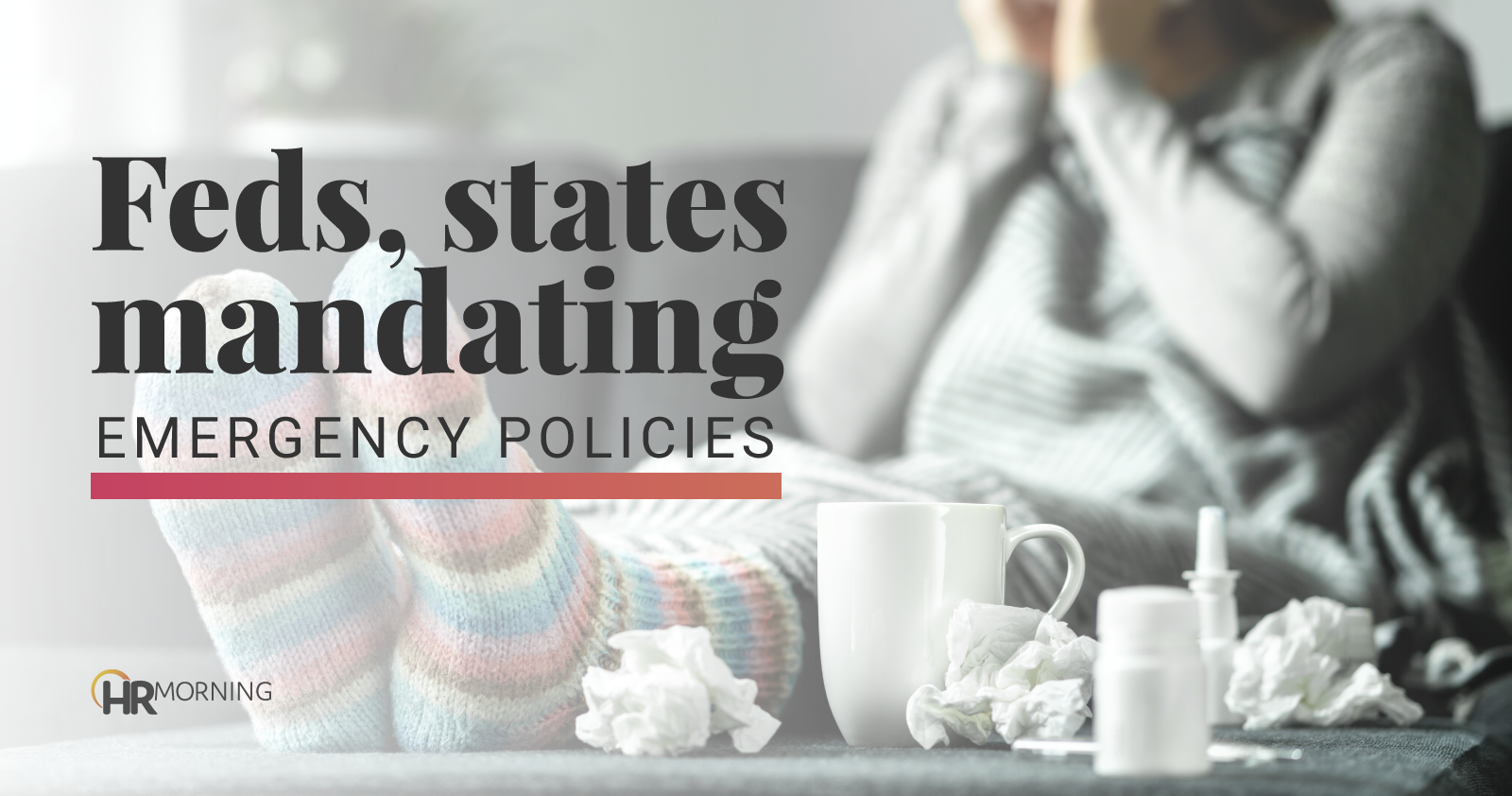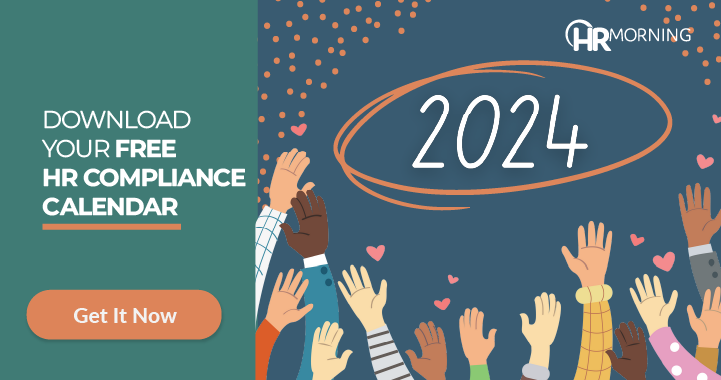Firms are updating paid sick leave policies as the House introduced a bill that would mandate employers offer paid sick leave to their employees, both in response to the coronavirus (COVID-19) outbreak.
The push for federal paid sick leave legislation is getting stronger, as the quickly-spreading coronavirus has been designated a pandemic, causing concerns that workers who can’t afford to stay home will accelerate the spread of the virus at work.
“It’s a very difficult tightrope for employers,” said Littler attorney Michelle Barrett Falconer. “They want to take care of their employees, but the outbreak puts them in a very precarious situation and could close a business down.”
Federal, state regs
Presently, federal law doesn’t require employers to offer paid sick leave, though 12 states and Washington, D.C. have laws on the books. (Maine will join that list in 2021.) Thirty cities and localities, including San Francisco, Chicago and Philadelphia, also have paid sick leave.
Since the virus outbreak, Colorado has acted quickly to temporarily mandate certain employers in the state provide a small amount of paid sick leave to employees with flu-like symptoms while awaiting COVID-19 testing. For 30 days, employers in the leisure, hospitality, food service, child care, education and home healthcare industries must provide up to four days of paid sick leave.
Other states, including Kentucky, have introduced such emergency bills, while Massachusetts has urged employers to offer paid leave to those stricken with the virus.
Arizona’s paid sick leave law, which was passed in 2017, could now become significant as the pandemic continues to spread. If a public health emergency’s declared, employers with as few as a single worker would be required to pay its employees.
The proposed federal bill is still being revised in the House before it moves to the Senate. The latest version of the bill would require employers with less than 500 employees to offer 14 paid sick days to a wide swath of workers affected by the pandemic, including those who are in quarantine or have children whose schools are closed.
And it would guarantee workers with the disease two-thirds of their salary for up to three months. The bill sets up a mechanism for the feds to reimburse employers who pay workers’ wages while they’re absent through a tax credit.
What employers should do
Many firms are updating their sick leave policies to keep staff at home to prevent the pandemic from spreading. The Centers for Disease Control and Prevention (CDC) advises firms to “ensure your sick leave policies are flexible and consistent with public health guidance and employees are aware of these policies.”
Here are some immediate steps employers can take:
Consider revising sick leave policies. First, ensure company paid sick leave policies are consistent with state and local laws. Then consider extending or expanding sick leave, “perhaps adjusting benefits plans for employees who exceed their sick-day allotment in order to support sick employees who must stay home,” says law firm Littler Mendelson.
Employers may not be legally required to pay employees during this pandemic yet, however, choosing not to do so makes it more likely they’ll return to work prematurely, potentially infecting other employees.
Add more flexibility. The CDC recommends firms be flexible enough to allow workers who have symptoms or have potentially been exposed to the virus, but can’t work from home, to take time off from work.
You need to be really careful as an employer about thinking short term because this situation is likely to get worse before it gets better,” said Falconer.


